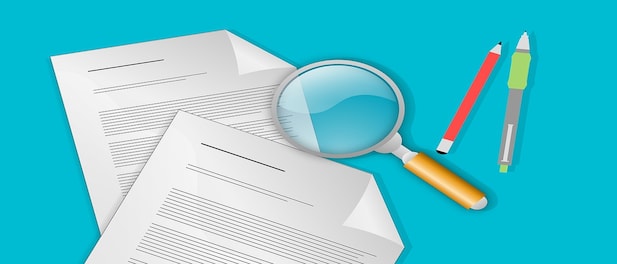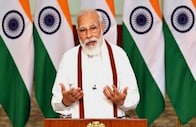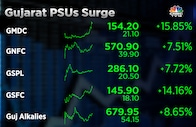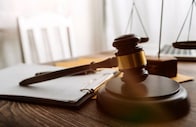Despite many legislative interventions in the past, IL&FS and DHFL accounting frauds of Himalayan proportions, both incidentally estimated at a whopping Rs 93,000 crore, have rocked the nation. At the root of the malaise lies the system of appointment of auditors. Ideally, there should be a dual audit regime with two auditors submitting their own audit reports.
The market watchdog the SEBI has passed on April 13 an interim order against the Hyderabad-based Brightcom group, pulling it up for enormous accounting frauds. That the accounting irregularities spanned 31 quarters involving a mammoth Rs 1300 crore once again shows that most of the accounting frauds are not sudden or one-time happenings but brewing over a period of time just like NPAs of banks.
It is de rigueur for the media and public opinion to wonder if auditors were asleep at the wheels. Indeed, they have always been.
Both the auditing and credit rating professions have been on the mat and suffering from crisis of confidence. The US acted post-Enron by enacting the Sarbanes-Oxley Act of 2002 federal law that established sweeping auditing and financial regulations for public companies to help protect shareholders, employees and the public from accounting errors and fraudulent financial practices. India acted after its own Enron moment, the Satyam Computers scandal of 2008, by revamping the company law with a brand new Companies Act, 2013 that made the statutory auditors the prime whistleblowers and purportedly acting against self-perpetuating audit houses.
But despite the legislative intervention, IL&FS and DHFL accounting frauds of Himalayan proportions, both incidentally estimated at a whopping Rs 93,000 crore, have rocked the nation. At the root of the malaise lies the system of appointment of auditors. Auditors are technically appointed by the shareholders who hardly demur but accept the name proposed by the management.
It is not apathy but the shareholding clout of the promoters in the saddle. The new law provides for rotation of auditors every five years in case of sole proprietor auditor and after two terms of five consecutive years each in case of partnership firms of auditors. This is neither here nor there. It is time management had absolutely no say in the appointment of auditors. As it is, the relationship is incestuous, as it were, with both playing footsie. Don’t bite the hand that feeds you guides an auditor when he sets out to write his audit report which is often laconic and perfunctory. There is also a disquieting view that the hefty fees paid to some of the Ivy league auditing firms subsumes and hides a hefty sliver of hush money.
Public sector companies’ auditors are appointed by the CAG from out of the panel maintained by it. This often results in fearless and frank reports. There is no reason why the SEBI should not be entrusted with the task of maintaining a panel of auditors and springing a surprise at every AGM by foisting a new auditor on the management of listed companies. The literary world is not unfamiliar with blind referencing of research papers so that the reviewer does not play favourites. In the auditing world too blind referencing of accounts can work wonders.
Ideally, there should be a dual audit regime with two auditors submitting their own audit reports. To be sure, it would result in duplication of efforts and expenses but it is worth it given the fact that both would be on their toes for the fear of being torpedoed by his peer cum rival.
Arthur Hailey in his infotaining novel -- The Final Diagnosis-- gives a graphic account of how a surgeon squirms uncomfortably in the peer review meeting following a death on the operating table with physicians and the entire medical team pouncing on him with a barrage of questions. The surgeon in the dock protests his innocence by charging his peers with speaking with the help of hindsight which incidentally is what happens also when an auditor’s work is examined by another auditor. Dual audit is indeed what the doctor has ordered so that both don’t have the benefit of hindsight and remain alert while auditing.
The House of Lords in the famous Kingston Cotton Mills case of the yore ruled that auditors were watchdogs and not bloodhounds. That latitude shown to auditors has proved to be costly. A century after the verdict, auditors across continents continue to smirk and smugly cite it self-servingly to save their skins. It is time the legislatures of all democracies expressly disavowed and distanced themselves from the woolly judgement of House of Lords despite its antiquity.
Forensic audit must now be imbibed by all practising auditors. True they may be handicapped and frustrated by lack of investigative powers especially of partners in the crime whose labyrinthine and tangled connections often frustrate our CBI and ED especially when the trail leads them to foreign shores. So, if accounting frauds assume criminal or international proportions, auditors must blow the whistle for the CBI and ED to step in.
— The author, S Murlidharan, is a CA by qualification, and writes on economic issues, fiscal and commercial laws. The views expressed are personal.
Read his previous articles here
(Edited by : C H Unnikrishnan)
Check out our in-depth Market Coverage, Business News & get real-time Stock Market Updates on CNBC-TV18. Also, Watch our channels CNBC-TV18, CNBC Awaaz and CNBC Bajar Live on-the-go!







